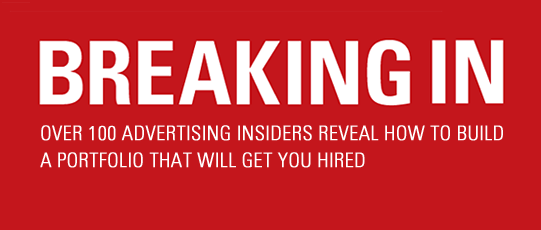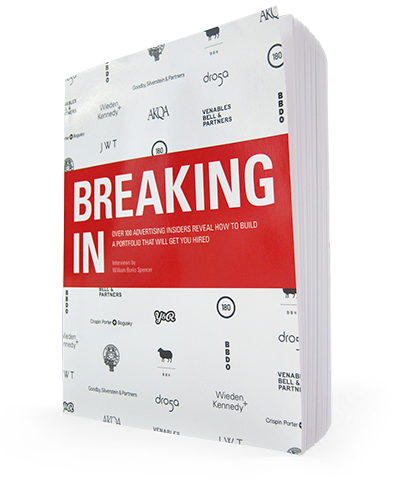In case you missed it, check out some great work from David Oakley and his agency BooneOakley.
WS: What do you look for in a student book? And what impresses you?
DO: Looking at a student’s book is kind of like porn. It’s hard to describe what you like, but you know it when you see it. I look for ideas. Also I look for unique ways of looking at things. Approaching a problem from a different angle. And one thing that I don’t seem to see anymore is long, well-crafted copy. I’m really getting tired of visual solution executions.
WS: How important is finish? If ideas are the most important thing, can sketches be enough? Do you look at physical books anymore, or is it all websites?
DO: Mostly I look at students’ websites or the occasional PDF that is sent. Finish is nice, but I think it’s a waste of time to make a half-baked idea look nice.
WS: How important is writing? Do you need to see long copy?
DO: As a writer myself, I think that the craft of copywriting is falling by the wayside. I hardly ever see well-written long-copy ads in student work. I’ve heard it said that nobody reads copy. That’s not true. I do.
WS: What do you think of showing work that is not advertising?
DO: I love seeing photography from art directors. I like seeing things that aren’t advertising. Sometimes seeing something completely different that has nothing at all to do with an ad shows a level of creativity that you don’t see in their work. I don’t want to look at a whole portfolio of their art, or read their whole journal, but a little look at their real personality is sometimes helpful. It could be the tiebreaker that says hire this guy over the other guy.
WS: Do you have any other advice for a student or junior trying to get into the business?
DO: Talk to as many people in the business as possible. Go on lots of interviews. Even if there is no job available. You’ll meet people who will tell you about other people to meet. This is a very small business. Keep trying. Keep knocking on doors. If you want a job bad enough, you’ll get one.


Comments are closed.